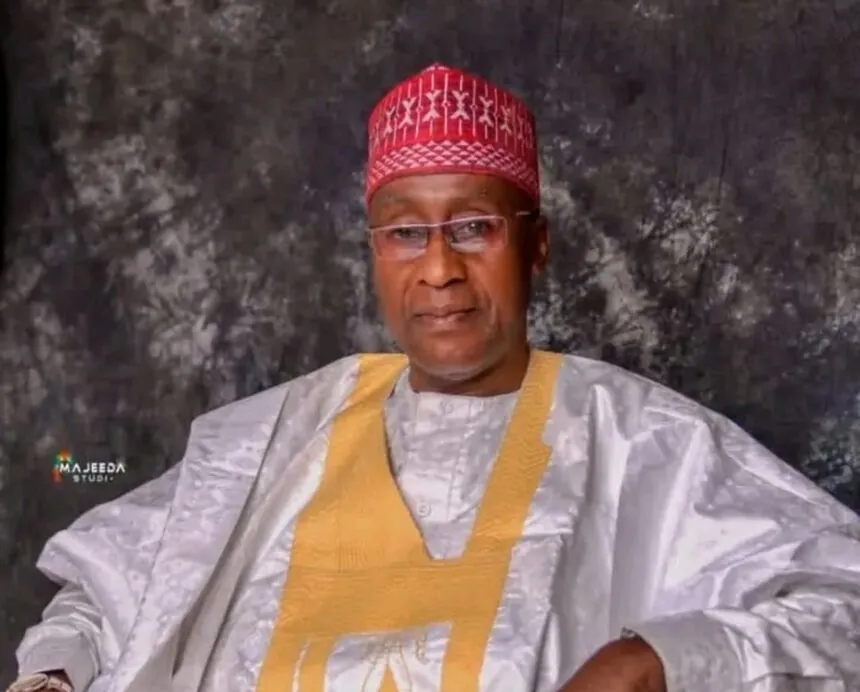News
Why We Don’t Sponsor Female Politicians — UN Women

…Gives Guidelines On How To Access Fund
Beatrice Eyong, United Nations, UN, Women Country Representative for Nigeria and ECOWAS, has explained why the body cannot financially sponsor female politicians.
Eyong said that the UN Women does not sponsor female political candidates due to policy restrictions existing in various countries and also that some funders say Nigeria has a lot of money,
Eyong spoke in Lagos at a workshop organised by the UN Women and the government of Canada in partnership with the Women Advocates Research & Documentation Centre, WARDC.
She spoke in response to an appeal made by Tolulope Akande-Sadipe, a member of the House of Representatives and former Chairperson, House of Representatives Committee on Diaspora, to the UN Women and nongovernmental organisations (NGOs).
Akande-Sadipe, while delivering a keynote address, had appealed to the UN Women and NGOs to consider funding the campaigns of women political candidates as a means of helping them overcome the burgeoning challenge of finance.
READ ALSO: WizKid’s ‘Made In Lagos’ Hits US Best-Selling African Album Record
Eyong said: “I have always advocated this also, even while in New York; that money be given directly to candidates.
“However, there is a problem with the rules that govern financing campaigns.
“Sometimes, some countries may allow it while others may not. Some countries have restrictions on direct funding of political campaigns by international organisations.
“Another thing I must put on the table is that when we are mobilising funds, what they (funders) tell us is that Nigeria has a lot of money and does not need money.
“So, we face difficulties mobilising funds for middle-income countries. When I was in Mali, I had nearly double the budget that I had in Nigeria because the argument is always that Nigeria has money and does not need money.
“This is the truth.
“We, however, are working on the electoral process so that it can be gender-responsive even though we are not giving money directly to candidates. So, we are working around the candidates to create a favourable environment.
READ ALSO: JUST IN: Again, Apapa Loses As Appeal Court Affirms Abure As LP Chairman
“With the funding from Canada, for example, we have been working with owners of media houses to influence how the media is reporting on women, especially women in politics.
“Among other things, we worked with the Girl Guides to mobilise rural women to vote for women candidates. We have also mobilised private sector CEOs to support women candidates.
“In addition, in terms of capacity building, we have worked with INEC and security agencies to ensure a gender-responsive security during elections.
“We have also set up three resource centres for women in politics. Also, we mobilised traditional rulers.
“Amid the many things that we have done, the law does not yet allow us to give money directly to candidates to fund their campaigns.”
READ ALSO: Communal Land Dispute Claims 4 In Enugu
‘How to access UN Women fund’
Eyong, however, advised that funding from the UN Women can be better accessed collectively, through a formally organised platform; and not individually.
“Another way you can have funding is if you are together. If we have a platform for female parliamentarians, it is easier to tell funders to fund your activities.
“Even when put together at the zonal levels, such platforms can easily have access to funding,” she said.
Earlier, Akande-Sadipe had said: “UN Women and other non-governmental organisations love you for your efforts; but we need money.
“Women’s access to money to finance their political aspirations is very limited.
“It is very important that you identify credible women and begin to finance their projects and campaigns, including vehicles, media, and more.
“We need those tangible cash assistance. The training centres are brilliant ideas but what happens if you train me and I do not have the money?
“What has limited women in this part of the world is money.”
News
MOWAA: Okpehbolo Receives Edo Assembly Resolution Indicting Obaseki

Edo State Governor, Monday Okpebholo, received report and resolutions of the Edo State House of Assembly which indicted former Governor Godwin Obaseki on the Museum of West African Art (MOWAA) and the Radisson Hotel projects.
Recall that the Edo Assembly raised a five-man committee to investigate funding and ownership of both projects following a request by Governor Okpebholo.
Okpebholo, who spoke after receiving the report said its findings and recommendations would be fully implemented.
Okpebholo said the Economic and Financial Crimes Commission (EFCC) would be invited to further examine issues raised in the recommendations.
READ ALSO:MOWAA: Why I Will Not Appear Before Edo Assembly Panel — Obaseki
According to him, the Edo State Government has significant stakes in the MOWAA and Radisson Blu hotel having invested ₦3.8bn respectively in both projects.
He said changes in the structure and nomenclature of the MOWAA project made the investigation unavoidable.
Okpebholo said it was unacceptable to suggest Edo State has only 10 per cent stake in the Radisson Blu hotem despite investing over ₦28bn.
“Edo State has spent over ₦3.8 billion on this project, yet some people are saying the state has no stake in it. That is totally unacceptable. I will work with your recommendations and forward them to the relevant authorities to investigate what truly happened. We will also involve the EFCC.
READ ALSO:MOWAA Controversy: Edo Assembly Threatens Arrest Warrant On Obaseki, Others
“Our investment in this project is over ₦28 billion. We must invite the EFCC to step in and determine if this is how businesses are conducted in Nigeria,” he said.
In its recommendations passed by the Assembly, the five-man committee headed by Hon Addeh Isibor, urged the Edo State Government to take possession of both projects.
It asked Governor Okpebholo to contract competent hands to complete renovation of the Hotel and take all steps to put the Hotel to use.
The recommendations urged the Edo State Government to revoke “the fraudulent Certificate of Occupancy to the property issued in the name of Hospitality Investment and Management Company Limited and revert same to the Edo State Government that purchased the property.
READ ALSO:Edo Assembly Charges Contractor Handling Ekekhuan Road To Accelerate Work
“That the Edo State Government initiate legal action and work with relevant Anti-graft Agencies to retrieve both the complete statement of account and the balance of the Seventeen Billion, Five Hundred Million Naira (N17,500,000,000.00) Bond proceeds still in the possession of the Escrow Agents. Meristen Trustees Limited and Emerging Africa Trustees Limited.
“The title to the MOWAA Property having never been revoked, same remains the property of the Central Hospital, Benin City
“That the Edo State Government immediately takes all necessary step to put the property to good use in the best and overriding public interest of the people of Edo State.”
Speaker of the Assembly, Hon. Blessing Agbebaku, said the facts about MOWAA and Radisson Blu Hotel were now clearly documented in resolutions and outcomes.
News
Sheikh Gummi Sues Two Over Alleged False Facebook Publication

Prominent Islamic scholar, Sheikh Ahmad Gummi, has approached the Chief Magistrate Court in Kaduna, seeking the issuance of a criminal direct complainant summons against two Facebook users over alleged criminal conspiracy, attempt to cause public disturbance and criminal defamation.
The application, filed at the Chief Magistrate Court sitting on Ibrahim Taiwo Road, Kaduna, listed the defendants as George Udom and Bello Isiaka.
According to him, the defendants allegedly published a “Breaking News” statement on their respective Facebook pages on December 23, 2025, between 7:00 am and 10:00 am, attributed to him, threatening that the family of the Minister of Defence, General Christopher Musa, would be eliminated if military operations against bandits were not stopped.
Gummi alleged that the publication was falsely attributed to him, as his photograph was allegedly used alongside the statement, giving the impression that he issued the threat against the Defence Minister.
READ ALSO:Nigeria Army Alone Cannot Defeat Bandits — Sheikh Gumi
The Islamic scholar stated that following the publication, he received numerous phone calls from concerned members of the public who believed he authored the statement and was attempting to intimidate the Minister of Defence in the discharge of his official duties.
He further maintained that the publication portrayed him as a troublemaker and a threat to public peace, despite his long-standing reputation as a cleric known for preaching peace and harmony within and outside Nigeria.
The complainant argued that the alleged publication was capable of inciting public disorder in Kaduna State, particularly Southern Kaduna, and could expose him to danger by presenting him as a prime suspect in the event of any attack on the Defence Minister’s family.
READ ALSO:Insecurity: What Sheikh Gumi Told Me After Visiting Bandits Hideouts — Obasanjo
He also contended that the actions of the defendants amounted to an attempt to cause public disturbance and criminal defamation of his character.
Dr Gummi told the court that the alleged acts contravened Sections 59, 57, 372, 116 and 117 of the Kaduna State Penal Code Law, 2017.
The application, dated December 24, 2025, was filed by a team of lawyers led by Suleiman Danlami Lere, with the complainant urging the court to summon the defendants to answer to the allegations.
News
JUST IN: Kano Lawmaker, Sarki Aliyu Daneji, Dies Hours After Colleague’s Passing

Hon. Sarki Aliyu Daneji, the lawmaker representing Kano Municipal in the Kano State House of Assembly, died on Wednesday, barely hours after the death of his colleague, Hon. Aminu Sa’adu Ungogo.
The Director-General, Media and Public Relations, Government House, Kano, Sanusi Bature Dawakin Tofa, confirmed Daneji’s death to journalists in Kano.
Daneji’s demise came shortly after the passing of Hon. Ungogo, who was the Chairman of the House Committee on Appropriations and represented Ungogo Local Government in the Assembly. Ungogo, a member of the New Nigeria Peoples Party (NNPP), reportedly died after a brief illness.
READ ALSO:JUST IN: Former Edo Information Commissioner Is Dead
He was said to have been at the Kano State House of Assembly earlier in the day, attending a committee meeting before his death.
The sudden loss of the two lawmakers within a short interval has thrown the Kano State House of Assembly into mourning, with colleagues, party members and constituents expressing shock and grief over the tragic development.

 News2 days ago
News2 days agoPHOTOS: New Era In Furupagha-Ebijaw As Okpururu 1 Receives Staff Of Office

 Metro4 days ago
Metro4 days agoJUST IN: Former Edo Information Commissioner Is Dead

 News1 day ago
News1 day agoUBTH CMD Marks 120 Days In Office, Expresses Commitment To Providing Conducive Working Environment

 News2 days ago
News2 days agoFG Declares Public Holidays For Christmas, New Year Celebrations

 News5 days ago
News5 days agoCoordinator, Edo First Lady Office, Majority Leader, Rights Lawyer, Others Bag 2025 Leadership Award

 Metro4 days ago
Metro4 days agoShe Grabs, Pulls My Manhood Anytime We Fight — Husband

 News5 days ago
News5 days ago[OPINION] Tinubu: Ade Ori Okin Befits KWAM 1, Not Awujale Crown

 News2 days ago
News2 days agoOPINION: Gumi And His Terrorists

 News2 days ago
News2 days agoFIRS Confirms NIN As Tax ID

 Metro4 days ago
Metro4 days agoWhy I Charged My Husband Money For Sex —Woman
































